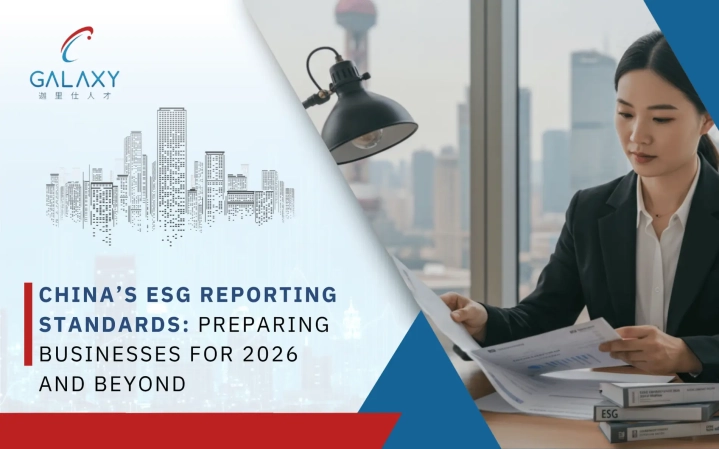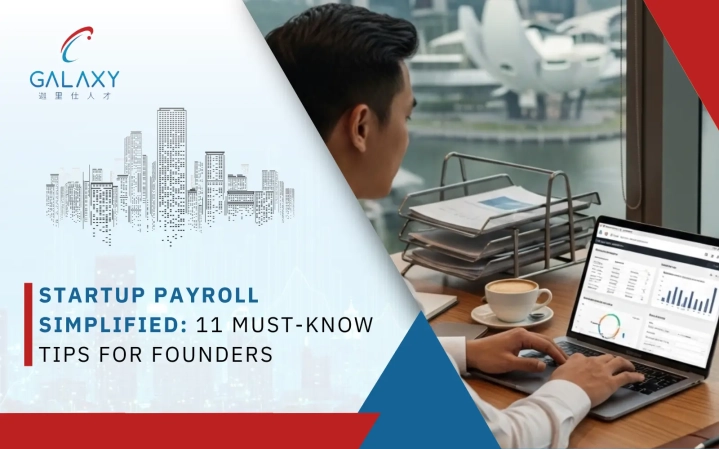Hidden Challenges of Cross-Border Employee Mobility in Taiwan

Organisations are steadily broadening their regional and international reach in today’s fast-paced global landscape. Taiwan, praised for its robust digital ecosystem, dependable governance, and central positioning in Asia, remains an attractive destination for global enterprises. Yet, beneath it’s appeal lie subtle complexities surrounding cross-border employee mobility, particularly in relation to immigration, labour laws, and regulatory requirements.
Transferring staff internationally requires more than logistical preparation – it necessitates a comprehensive awareness of the host country’s legal, cultural, and economic environment. Although Taiwan’s employment structure is broadly investor-friendly, it comes with distinct challenges. These include employment contracts in Taiwan, changing norms around employee benefits in Taiwan, and legislation that favours local employee protection.
Understanding these less obvious but critical aspects of employee mobility is essential for any organisation seeking a smooth and sustainable expansion into Taiwan. In the sections that follow, we will examine the hidden challenges that businesses must anticipate and navigate to ensure both compliance and operational success in this dynamic market.
Table Of Content
- Social and Cultural Meshing
- The Immigration Framework in Taiwan
- Facing Labour Law Restrictions and Employment Risk
- Limited Sectoral Mobility and Workforce Reassignment Issues
- Permit Approvals and Employer Eligibility
- Legal Disputes and Employment Litigation
- Managing Non-Compete Covenants
- Remote Work and the Shifting Definition of Employment
- Strains in the Compensation and Payroll Processes
- Conclusion
Social and Cultural Meshing
Foreign professionals in Taiwan often encounter social and cultural hurdles that complicate workplace integration. The local communication style, which avoids confrontation and promotes politeness, may lead to miscommunication. Confucian traditions, which emphasise hierarchy and respect for titles, can clash with the flatter organisational cultures common among expatriates.
Given the importance of Guanxi networks, business practices such as after-hours gatherings may feel obligatory and complicate social interactions. Informal language barriers and limited awareness of cultural norms may further inhibit cohesion. To address these issues, employers should provide pre-arrival cultural training, ongoing language support, dual-language communication, mentorship, and inclusive team-building. Emphasising diversity training and fostering cross-cultural dialogue are also critical for long-term integration.
The Immigration Framework in Taiwan
Taiwan adopts a layered immigration policy, with distinct categories for foreign nationals, Mainland Chinese citizens, and individuals from Hong Kong and Macau. Programs like the Employment Gold Card and simplified channels via the Workforce Development Agency (WDA) have enhanced accessibility for select professionals. Yet, companies must still navigate a thorough application and approval process.
Foreigners may only work in Taiwan if their individual qualifications and employer credentials meet specific criteria. Most foreign employees are required to hold a relevant degree or possess considerable industry experience. Simultaneously, employers must demonstrate financial viability, often through revenue or capital thresholds, to sponsor foreign staff.
Facing Labour Law Restrictions and Employment Risk
Taiwan’s labour system does not support ‘at-will’ employment. Termination must have substantial legal grounds, such as restructuring or underperformance. Additionally, procedural compliance is essential, encompassing notice periods, severance compensation, and job search leave.
While designed to uphold workers’ rights, these provisions may prove difficult for foreign firms less familiar with the local framework. Misaligned employment contracts in Taiwan or improperly managed terminations can lead to costly legal disputes and reputational damage.
Limited Sectoral Mobility and Workforce Reassignment Issues
A frequently overlooked obstacle is limited sectoral mobility. Employees in Taiwan are typically retained within their current industry – transitions from manufacturing to services, for instance, are rare. This limits versatility and complicates workforce planning for organisations aiming to develop cross-functional teams.
In addition, evolving policies on the minimum wage in Taiwan and entitlements require businesses to recalibrate their workforce mobility strategies accordingly.
Our guide: Minimum Wage Trends in 2025 : A Comprehensive Global Overview
Companies seeking to employ foreign professionals must meet specific qualifying conditions, including revenue or trade volume benchmarks. Without such credentials, even highly skilled individuals may be unable to obtain a valid work permit.
Learn more about “How to Apply for work permit in Taiwan“
Even intra-company transfers face scrutiny, requiring adherence to employment law and confirmation that the local entity is authorised to sponsor overseas employees.
Legal Disputes and Employment Litigationy
Mediation is commonly encouraged in Taiwan, but courts frequently intervene in unresolved employment cases. Disputes often center around unfair dismissal, contract ambiguity, or workplace discrimination.
To avoid complications, businesses must operate in accordance with Taiwanese labour standards, especially in areas involving Taiwan employee benefits, severance practices, and reassignments. Failing to do so could result in back pay, reinstatement orders, or legal penalties.
Managing Non-Compete Covenants
To safeguard intellectual property and sensitive information, many businesses use post-employment restrictions. In Taiwan, non-compete clauses are only valid if four requirements are met:
- The employer has a lawful interest to protect
- The employee had access to sensitive business information
- The clause is logical in scope and duration (maximum two years)
- The employee receives fair compensation
Such clauses may be deemed invalid without adequate compensation or clarity, which could potentially increase competitive vulnerability.
Our guide: How to Hire International Employees : A Comprehensive Guide
Remote Work and the Shifting Definition of Employment
The growing trend of remote work has altered the traditional understanding of employment. Courts in Taiwan now evaluate employment status based on practical controls, operational integration, and economic dependence – rather than relying solely on contractual designations or physical presence.
Companies with a remote workforce in Taiwan should carefully structure these arrangements to avoid unintentionally triggering employer obligations under Taiwanese law.
Strains in the Compensation and Payroll Processes
Managing payroll in Taiwan entails compliance with tax regulations, social contributions, and the Labour Standards Act. Salaries must meet the legal minimums, and statutory benefits – such as National Health Insurance, labour insurance, and retirement funding – must be applied correctly.
Although the average salary in Taiwan varies across sectors, international employers must ensure that their compensation structures meet both legal and market demands to recruit and retain qualified personnel.
Conclusion
Cross-border employee mobility in Taiwan offers immense opportunities but also demands informed navigation. From immigration compliance to local employment laws, success hinges on expert support.
At Galaxy Payroll, we deliver more than consultation. We offer a fully managed solution for companies relocating employees, setting up new branches, or testing the market without full legal incorporation.
Our offerings include:
- Business incorporation in Taiwan and regulatory compliance
- Legally Compliant Employment Contracts in Taiwan
- Comprehensive payroll services in Taiwan, including taxation and benefits
- Immigration assistance, including permits for foreigners who can work in Taiwan
- Employer of Record (EOR) options for companies not ready to establish an entity
- Operational support for both remote and hybrid teams
With Galaxy Payroll as your compliance and payroll partner, you gain clarity, avoid regulatory setbacks, and scale operations efficiently.
Disclaimer: This blog is for informational purposes only and does not constitute any legal advice.
Set Up a Remote Workforce in Taiwan with Ease!
Build and manage your remote teams in Taiwan with Galaxy Payroll
FAQ’S
Can foreigners work in Taiwan legally?
Yes, foreigners can work in Taiwan legally, provided they obtain the appropriate work permit and meet eligibility criteria such as qualifications, salary thresholds, and sector-specific requirements.
What are the key challenges of cross-border employee mobility in Taiwan?
Cultural and family integration, work permit and visa compliance, employment contract alignment, managing compensation and employee benefits and adapting to Taiwan’s Compliance system, are some of the lesser-known but critical challenges.
What should employment contracts in Taiwan include for foreign employees?
Employment contracts in Taiwan must comply with the Labour Standards Act and include necessary terms such as wages, working hours, leave, and termination. Bilingual contracts should specify the governing language in case of disputes.
How does cross-border mobility affect family members of foreign employees?
Spouses and dependents may face challenges like visa restrictions, job limitations, and adapting to local schools and healthcare systems. Proper support can ease their integration.




